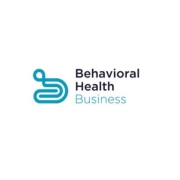Biotech Bankruptcies Skyrocket
By Ana Mulero
Oct. 11, 2023
Bankruptcy among biotechs is on the rise, with a spike in the number of cases in the past couple of years, highlighting struggles to secure financing and recover financially.
This year has seen a record high 28 biotech bankruptcies so far, SEC filings show. And more will come by year’s end, according to James Cassel, chairman and co-founder of Miami-based investment banking firm Cassel Salpeter & Co., which helps companies through bankruptcy processes. The most recent filing came from Infinity Pharmaceuticals on Sept. 28. The company entered a merger agreement with MEI Pharma in February to advance three clinical oncology candidates, only to have the agreement fail in July, which resulted in Infinity laying off 78% of its workforce and declaring bankruptcy.
Last year saw a total of 20 biotech bankruptcy cases, compared with 2021’s total of nine, which was consistent with historical trends.
Experts who spoke with BioSpace identified some fundamental drivers of the recent uptick, including the economy post-COVID-19, a shift toward data-driven financing activity and inflation rates, among others.
Cody Powers, a partner and principal for portfolio and pipeline at management consulting services company ZS Associates, pointed to the rapid rate of innovation and evolution as another factor. There are thousands of companies in today’s biotech space. In addition to facing so much competition, companies have to develop new technology to address increasingly difficult problems. For example, many problems in cancer are harder to solve than those addressed in the past, and the same goes for an autoimmune disease, among other conditions, Powers told BioSpace. Overall, he explained, biotechs are having to fund more types of programs to get the same number of approvals “compared to what we’re used to.”
To keep the same number of approvals coming, companies “need more dice rolls to get the same number of successes,” Powers said. And each of those
dice rolls requires funding.
Cassel emphasized the impact of interest rates. “As interest rates have risen, the ability to raise capital for biotech companies has become more difficult,” leading to more companies filing for bankruptcy and selling their assets over a lack of liquidity and available capital, Cassel said.
The most recent biotech bankruptcy for which Cassel was retained is that of Athenex, now pending in the Southern District of Texas. Athenex declared\ bankruptcy in May. Other cases include Aceragen, Avadel Specialty Pharmaceuticals, NephroGenex, Sancilio Pharmaceuticals and Statera Biopharma.
The bankruptcy protection allows companies to raise the cash needed to pay off creditors, while generally fending off enforcement action and suspending the statute of limitations to collect.
The trend is new for the biotech world. “Biotech is not a world where people are used to thinking about bankruptcy,” Powers said. This is because “bankruptcy means you can’t pay your debtors, and biotech is not majority debt-financed. Most of biotech is equity financed.” But since the start of COVID-19, companies have been more apt to take on debt, he noted.
“We’ve really never had something like this, but we’re probably going to two years of a consistent downward trend for biotech,” Powers said.
Funds Dry Up
The number of biotech bankruptcies ticked up to 13 in 2020, an increase from the two preceding years, which Powers called “a little surprising.” But his interpretation is that companies were forced to halt clinical trials because of the pandemic, and if they hadn’t raised enough money to see them through this lull and were on the hook for fixed costs, they struggled.
“When the money started to dry up off the back half of 2021, everything started to fall apart,” he added. “By the time 2022 rolled around, even in the first quarter, that’s when the layoff tracker started to tick up, and that was kind of a leading indicator of companies running out of money.”
But “it’s a terrible market to get financing,” Ira Leiderman, managing director of the healthcare practice at Cassel Salpeter & Co., added. “Companies are not getting financed, and they have no choice but to break the glass and push the bankruptcy button.”
Mert Zorlular, president and chief financial officer at Er-Kim, a regional pharmaceutical partner in Europe, has some insight on the situation since Er-Kim monitors the space for opportunities to secure deals with biotechs that can provide assurance of staying afloat.
“As [some] companies cannot viably provide financing through the regular models, we arrive at a situation in which we have numerous companies with many assets with a lot of potential, but no way to finance operations until these assets are commercial,” Zorlular said. “In such an event, the company either winds down operations, sells for scraps, or files for bankruptcy.”
In this situation, some companies resist selling themselves, seeing this as an admission of defeat, Leiderman said. Instead, they may wind up in bankruptcy.
The way Powers sees it, there are two overarching drivers in the scarcity of funds: an outbreak of economic malaise, and increased pragmatism among
biotech investors.
“Investors are much more hard-wired to what is actually generating value as opposed to what just looks innovative,” he said. “By extension, there are a number of parts of biotech that have been disproportionately punished.” He pointed to cell and gene therapies as some examples.
Bankruptcy is “a tool that was not necessarily in management’s and boards’ toolboxes in the biotech industry” before as much as it is now, Leiderman noted. It is a tool, as bankruptcy can allow the company to survive.
But Cassel argued that most companies in the biotech space are using bankruptcy to sell their assets and wind down rather than as a bid for survival. “They need money. They need the capital infusion to finish what they’re doing, so, as a result, what they’re doing is finding new homes for their assets,” Cassel said.
Powers said, “the mentality now is much more cash preservation and survival,” pointing to this year’s many layoffs as evidence. “Everybody is basically trying to give themselves the maximum possible runway in any kind of downside scenario to make bankruptcy the most remote possibility.”
Planning for Every Scenario
Every biotech has a plan to raise money, but they also need a plan to be acquired or merge, Leiderman said. In terms of winding down, if the company has an ongoing trial, he stressed the importance of stopping it in a way that the data are of value to sell.
Leiderman’s biggest recommendation is, “It’s the planning; not the plan.” Powers urged that companies “don’t think like 12 months cash. Think like 36 months . . . or more in cash to stay around as long as possible.”
Despite the current trend, Leiderman and Cassel remain hopeful for the future of biotech financing, in part due to the time and cost savings associated with the use of artificial intelligence in drug discovery and development.
To stay out of bankruptcy, Zorlular recommended that companies avoid conventional business models. “The biotech industry as we know it today never had to operate under a high inflation/high yields kind of environment,” he said. “Companies need creative ways to survive these challenging times.”
Ana Mulero is a freelance writer based in Puerto Rico. She can be reached at anacmulero@outlook.com and @anitamulero on X.
Click here to read the PDF.
Click here to read the full article.







